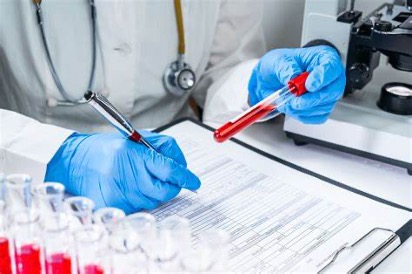Advanced Blood Test Helps Improve Cancer Treatments
July 4, 2024
Source: drugdu
 388
388
 Early detection of cancer significantly increases the likelihood of successful treatment across various cancer types. In addition to personalized evaluation of therapy benefits and risks, continuous monitoring of treatment success is vital. Traditionally, oncologists rely on imaging technology and invasive procedures such as tissue biopsies, punctures, and endoscopic measures to monitor patients. Now, researchers have further developed an advanced method, a type of liquid biopsy that utilizes blood samples rather than direct tissue sampling for detecting various types of cancer.
Early detection of cancer significantly increases the likelihood of successful treatment across various cancer types. In addition to personalized evaluation of therapy benefits and risks, continuous monitoring of treatment success is vital. Traditionally, oncologists rely on imaging technology and invasive procedures such as tissue biopsies, punctures, and endoscopic measures to monitor patients. Now, researchers have further developed an advanced method, a type of liquid biopsy that utilizes blood samples rather than direct tissue sampling for detecting various types of cancer.
The technique, developed by researchers at the University of Zurich (UZH, Zurich, Switzerland) and the University Hospital Zurich (USZ, Zurich, Switzerland), involves sequencing and analyzing DNA fragments that circulate in the blood of patients to identify changes specific to particular cancers. The research team examined alterations in the number and length distribution of the DNA fragments, enabling them to distinguish between biologically less and more aggressive metastatic cancers even earlier than traditional imaging methods.
In their study, the researchers applied this method to patients undergoing radiotherapy, including some affected by the human papillomavirus (HPV), known to cause certain cancers. By measuring the concentration of HPV DNA fragments in the blood, they could track tumor development. For head and neck cancer specifically, high levels of HPV DNA in the blood were identified as a possible early indicator of cancer recurrence, suggesting the potential use of immunotherapy as a treatment response.
This novel liquid biopsy technique holds promise for risk assessment, treatment monitoring during follow-ups, and early detection of cancer recurrence for all tumor types. Its non-invasive nature, relying on blood samples rather than tissue biopsies, makes it less burdensome and more feasible for routine use in clinical settings. This method reduces the need for frequent diagnostic procedures, reducing long waiting periods for patients. By providing a more accurate evaluation of tumor activity and progression, this approach can significantly aid oncologists in designing personalized treatment plans tailored to individual patient needs.
“Our method can be used in the future for risk assessments, treatment monitoring during follow-up care and early detection of cancer recurrence, in principle for all types of tumors,” said Zsolt Balázs from the UZH Department of Quantitative Biomedicine, who is co-first author of the study published in Radiotherapy and Oncology. “We can see earlier and more quickly how much the cancer has spread in the body and how well a patient is responding to a specific treatment, or whether there will be a relapse.”
Source:
https://www.labmedica.com/molecular-diagnostics/articles/294801705/advanced-blood-test-helps-improve-cancer-treatments.html
Read more on
- China Sino Biopharmaceutical Signs Exclusive Licensing Agreement with Sanofi for Rofalcitinib March 4, 2026
- Gan & Lee Pharmaceuticals’ new PROTAC drug GLR2037 tablets have been approved for clinical trials to enter the field of prostate cancer treatment March 3, 2026
- AideaPharmaceuticals plans to raise no more than 1.277 billion yuan through a private placement to focus on the global clinical development of innovative HIV drugs March 3, 2026
- Giant Exits! Its Star Business Acquired March 3, 2026
- Focusing on cardiovascular and cerebrovascular diseases! OpenMediLead Medical Intelligence Dual Engines Launch Internal Testing, Connecting Drug Development and Clinical Diagnosis in a Closed Loop March 3, 2026
your submission has already been received.
OK
Subscribe
Please enter a valid Email address!
Submit
The most relevant industry news & insight will be sent to you every two weeks.



